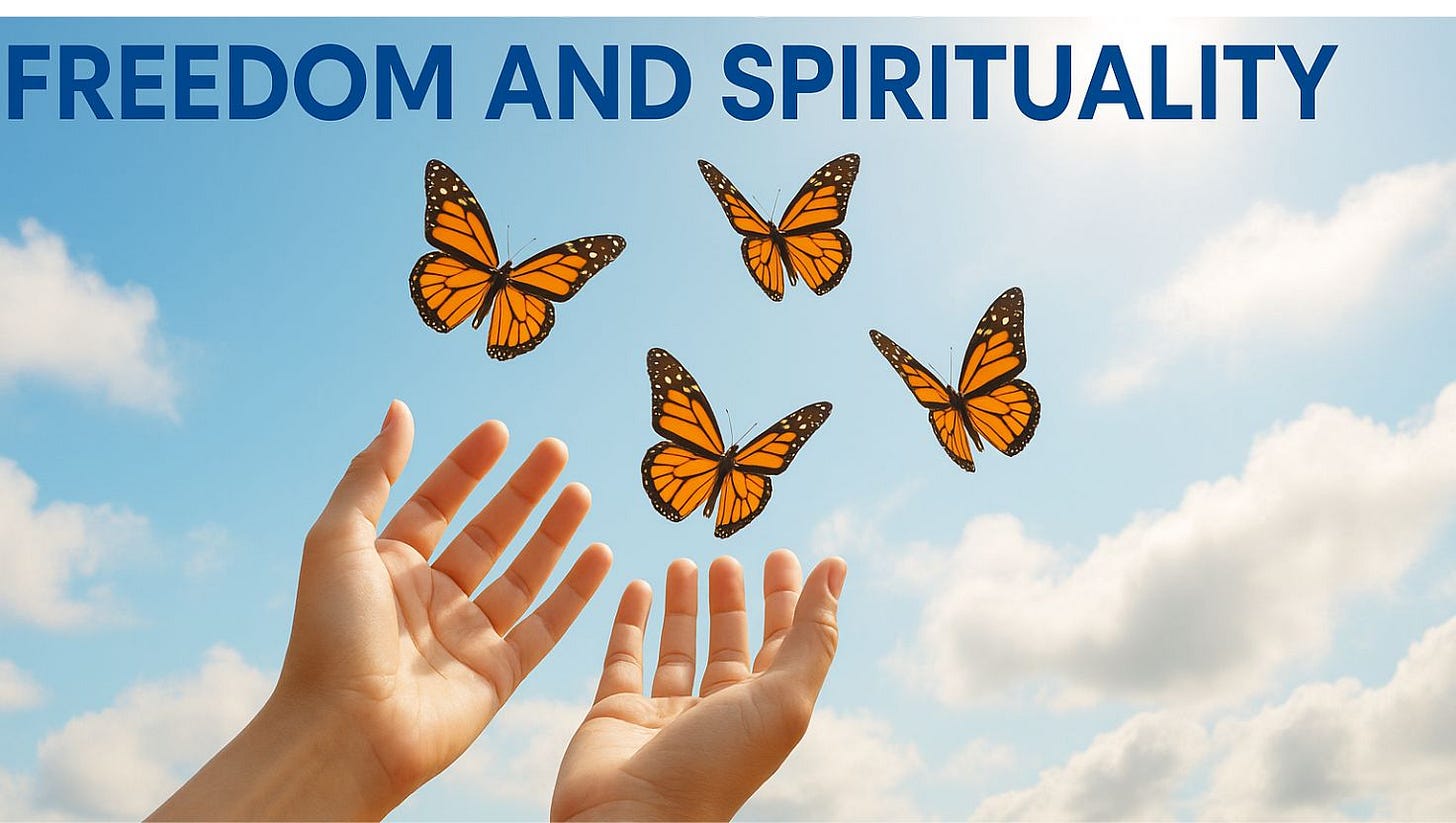In recent years, I’ve watched the erosion of freedom and spirituality in the United States with growing concern.
Once a beacon to the world, America led by example — a land where self-reliance and voluntary community thrived, where faith and freedom were not at odds but intertwined.
Our founding vision rejected coercion. The American Revolution gave birth to a decentralized confederation of sovereign states. The people who built this nation — pioneers, builders, innovators — were bound by shared moral codes and a fierce respect for individual rights.
Yet today, in just over two centuries, much has changed.
A once-constrained federal government has become one of the most powerful centralized forces in the world. Presidential powers now include broad executive orders and global military action.
Culturally, we’ve drifted from self-reliance to dependence. Many now expect government support from cradle to grave. Entrepreneurs — once admired for their ability to create value — are cast as exploiters. Layers of regulation suffocate those seeking to serve their fellow citizens through innovation.
Faith itself is ridiculed. The ideal of serving others through entrepreneurship — of profit as a reflection of value delivered — has been twisted into accusations of selfishness.
And yet: within every crisis lies opportunity.
The erosion of freedom and spirituality can awaken us to their importance — and to our responsibility to protect and renew them.
Principles That Endure
Both freedom and spirituality begin within each of us — but they are only made real in how we treat others.
Certain principles cut across traditions, cultures, and philosophies. They are timeless. And they provide a guide for rebuilding societies grounded in both liberty and virtue.
Voluntary interaction is the first principle. Coercion — whether by government or by individuals — is incompatible with both freedom and spiritual values. To love one’s neighbor, or to respect others’ freedom, is to reject the initiation of force. Freedom requires self-defense only in the narrowest sense; spirituality calls us to peace.
Honesty and integrity follow. Freedom cannot thrive without trust. Keeping one’s word is universally valued. In a free society, contracts formalize trust — but even beyond written words, good faith and clarity matter.
Principles over bureaucracy is the third. Detailed rules and codes often lead to loopholes, manipulation, and distrust. Principle-based norms — which respect choice and human dignity — foster true community.
Where these principles are honored, both freedom and spirituality can flourish.
Small Communities, Big Lessons
One reason I’m drawn to Free Cities and entrepreneurial governance is that they allow these principles to be lived — not just theorized.
In smaller jurisdictions, rules can be simple and transparent. Relationships can be personal. Reputation matters.
When residents freely choose communities that reflect their values, they help build a society that aligns freedom with service, and spirituality with mutual respect.
Morazán: Freedom in Practice
Morazán offers a powerful example. Its written rules are few and clear. Designed to serve Honduran workers, it builds on shared cultural norms of respect and neighborliness.
But where new norms are needed, they are introduced thoughtfully. Take littering: in Honduras, tossing trash on the roadside is common. Morazán forbids it — not with harsh fines, but with patient reminders and a clear community value. Abundant trash bins and regular maintenance make it easy to comply.
The result? Morazán is the cleanest neighborhood in the region. Residents now take pride in this shared standard — even cleaning up after stray animals.
This is not coercion. It is voluntary cooperation around a visible good.
Parking offers another example. Initially, double-parking was common, as it is across Honduras. Rather than punish this behavior, Morazán redesigned its streets: a central parking lot replaced street parking, and streets became pedestrian zones. The outcome? Safer streets where children now play freely — and a shift in community norms that residents value.
Even during the pandemic, Morazán stood out. While mask mandates were strictly enforced across Honduras, Morazán, under its autonomous ZEDE governance, did not impose them. Residents chose for themselves. Notably, no COVID hospitalizations occurred among Morazán residents — a testament to both personal responsibility and resilience.
The Human Element
Living in Morazán, I’ve spoken with many neighbors. I hear no complaints about the rules. Why? Because they are few, they are transparent, and they are rooted in service — not in arbitrary power.
This is a key insight. Freedom is not about the absence of all rules. It is about choosing your rules — and the community in which you live.
Spirituality, too, is not about imposed dogma. It is about living your values in relationship with others — respecting their choices while pursuing your own growth.
Both freedom and spirituality are expressed most powerfully in voluntary service to others.
A Model for the Future
Morazán is not perfect. No community is. But it offers lessons.
It shows that simple, principle-based governance can foster trust, pride, and cooperation. It shows that when rules serve residents — rather than the rulers — freedom and spirituality thrive.
Most of all, it reminds us that renewal is possible. Even in an age of centralization and cynicism, we can build communities where liberty and virtue reinforce each other.
That is a project worth pursuing. And it begins with the choices we make — every day, in every interaction.



